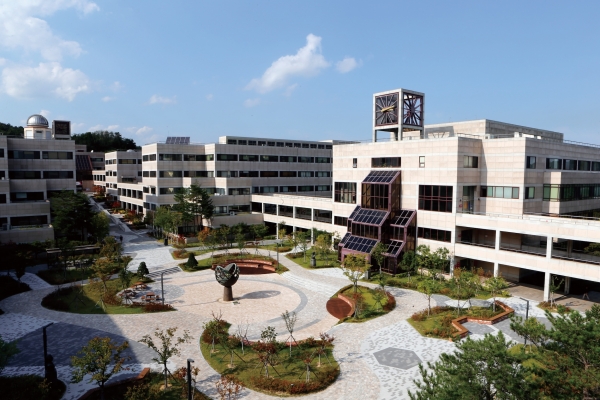
On Thursday, July 11, an academic system briefing for undergraduate students for the first half of the 2024 academic year was held. The briefing aimed to directly introduce the major academic systems of the university and facilitate communication through a Q&A session with students. The briefing highlighted new initiatives such as establishing convergent majors and minors, restructuring the Off-Campus semester program, and introducing domestic university credit exchange programs.
Previously, the university offered various programs allowing undergraduates to broaden their academic understanding and adapt to a changing society by studying subjects outside their primary majors. These include multiple convergent minors in areas such as Entrepreneurship, Next-Generation Communications and Network, Eco-Friendly Energy Materials, Environmental Studies, Civilization Studies, Science and Technology Studies, and Economic and Financial Studies, amounting to seven convergent minors currently offered. The university plans to expand its distinctive convergent educational programs while maintaining the existing department structure, designing convergent curricula across various fields to ensure accessibility and opportunities for students to challenge themselves, without overwhelming them academically. Depending on the completion of relevant courses, students can earn either an “Interdisciplinary Major (35 credits)” or an “Interdisciplinary Minor (21 credits).” New programs will include Synthetic Biology and Medical Science and Engineering. The Synthetic Biology program aims to train specialists capable of driving innovation in the field of synthetic biology, while the Medical Science and Engineering program focuses on developing leaders in the future of medical science and engineering. Students can apply after being assigned to a department, with application periods aligning with the university’s course registration periods.
The previously established Off-Campus Program has been revised to clearly define application methods and criteria, solidifying the semester-based program. It allows undergraduates to spend one semester taking online classes from the university while engaging in chosen activities domestically or abroad. This free semester program aims to nurture world-leading Postechians by enabling students to transcend academic and spatiotemporal boundaries. Eligible participants are those who have completed at least four semesters, with at least one semester following their major selection. They can participate by joining designated department programs or after designing their own. By taking dedicated OC semester courses or utilizing online courses and MOOC credit recognition, students can earn more than 12 credits and receive a scholarship of 3.5 million KRW. If students choose to participate in both a short-term study abroad program and the Off-Campus semester program simultaneously, only the scholarship for the short-term study abroad will be awarded, and no additional scholarships will be provided for the Off-Campus program. Activities include lab visits, research participation, language studies/exchange programs, conference organization and attendance, internships, and volunteering. Applications are made after drafting a plan with a faculty advisor, followed by participation and submission of a final report, with application periods now aligned with the university’s course registration timeline after this revision.


